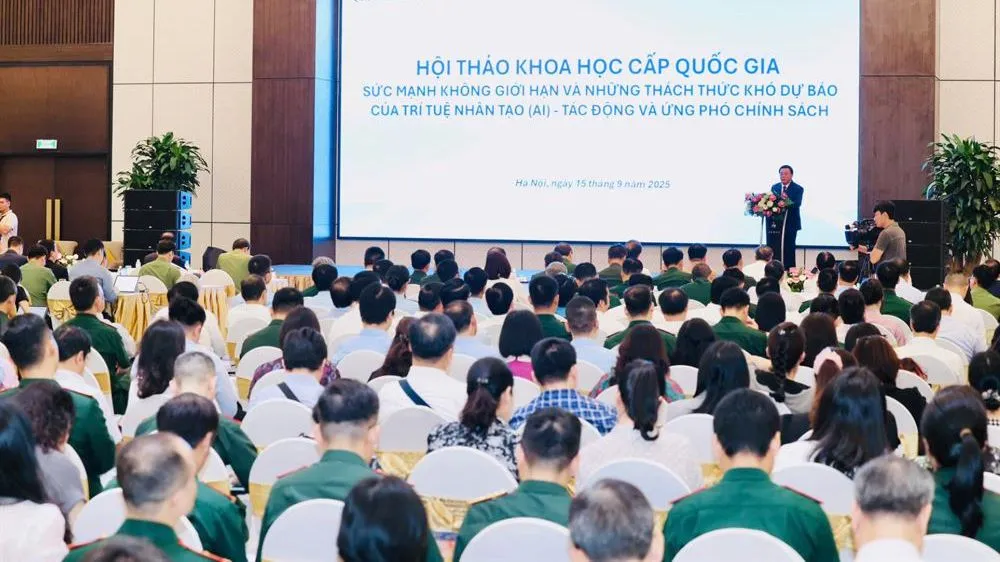
On September 15, in Hanoi, the Ho Chi Minh National Academy of Politics coordinated with the Ministry of Public Security , the Ministry of National Defense, the Central Theoretical Council and the Ministry of Science and Technology to organize a scientific workshop "Unlimited power and unpredictable challenges of artificial intelligence (AI) - Policy impacts and responses".
Nearly 400 delegates from Party and State agencies, institutes, schools and businesses attended, showing special interest in technology considered the "new productive force" of the digital age.
In his opening speech, Senior General Luong Tam Quang, Politburo member and Minister of Public Security, emphasized that AI is a key technology of the 4.0 industrial revolution, which can change the global order. The Party has issued Resolution 57, identifying science and technology, innovation and digital transformation as the "key" to helping the country overcome the middle-income trap, in which AI plays a breakthrough role.
However, along with that potential come unprecedented challenges, not only in terms of technology or ethics, but also in terms of law, security, data sovereignty and the risk of increasing inequality without the right development direction.
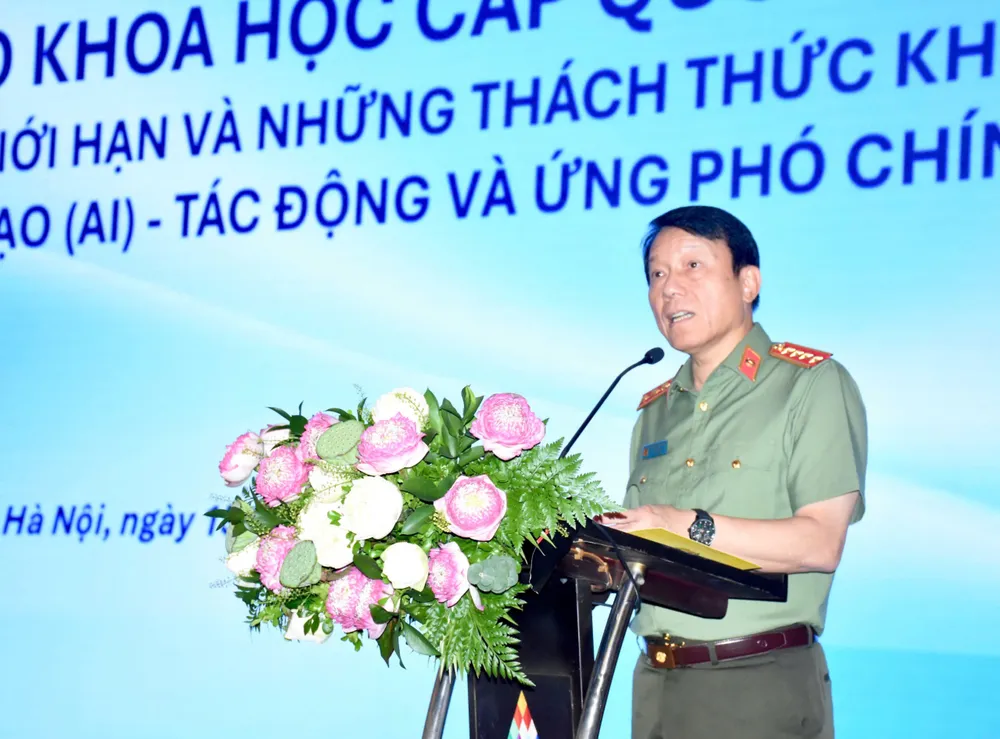
Minister Luong Tam Quang emphasized: "Developing AI in the current context requires a delicate balance between innovation and discipline, between speed and control, between integration and independence and autonomy. Building an AI ecosystem cannot be separated from the requirements of ensuring technological sovereignty, data security and protecting national interests. AI cannot be a technology only for the market, but must be a component of the national strategy for sustainable development and comprehensive security."
Prof. Dr. Nguyen Xuan Thang, Politburo member, Director of the Ho Chi Minh National Academy of Politics, Chairman of the Central Theoretical Council, affirmed that AI is opening up a “golden opportunity” for Vietnam to make a breakthrough, but also poses risks to social security, inequality, privacy violations and national security. He emphasized that “technology is a tool, people are the goal”, requiring the support of national policies, the business community and society.
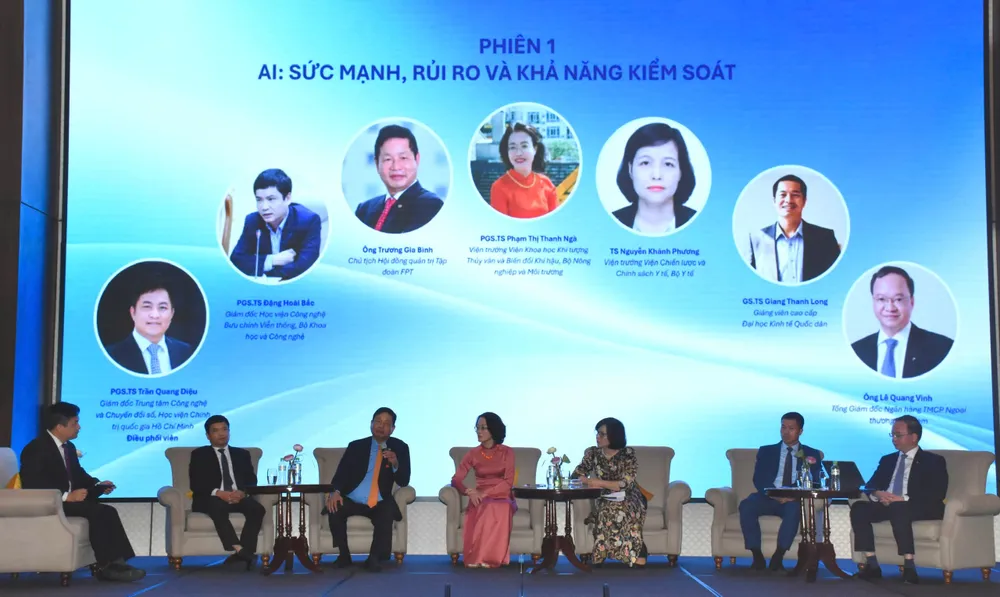
At the workshop, Minister of Science and Technology Nguyen Manh Hung shared that AI could contribute up to 79.3 billion USD, equivalent to 12% of GDP by 2030 if widely applied. Vietnam currently ranks 51/188 countries in the AI readiness index, has hundreds of AI startups, and about 75% of businesses have applied this technology.
Minister Nguyen Manh Hung said that by the end of this year, Vietnam will announce a new version of the national AI strategy and complete the AI law, considering it a "declaration of national vision", putting people at the center, managing according to the level of risk and protecting digital sovereignty.
The presentations at the workshop focused on three groups of issues: identifying AI as a key production force; analyzing economic, social, and security risks; and proposing policies for developing autonomous, safe, and humane AI. Experts also highlighted challenges: lack of high-quality human resources, weak research infrastructure, and semiconductor industry, etc.
The workshop affirmed the urgent need for a long-term, synchronous strategic orientation for AI: building an innovation ecosystem, strict laws, human resource development, data protection and privacy. Recommendations and proposals from the event will be taken into account to complete the documents submitted to the 14th National Party Congress.
Source: https://www.sggp.org.vn/ai-giu-vai-tro-dot-pha-dua-dat-nuoc-vuot-bay-thu-nhap-trung-binh-post813086.html



![[Photo] General Secretary To Lam chaired a working session with the Standing Committee of the Party Committee of the Ministry of Foreign Affairs](https://vphoto.vietnam.vn/thumb/1200x675/vietnam/resource/IMAGE/2025/9/15/f26e945b18984e8a99ef82e5ac7b5e7d)


![[Video] Closing Ceremony of the National Achievement Exhibition on the Evening of September 15, 2025](https://vphoto.vietnam.vn/thumb/1200x675/vietnam/resource/IMAGE/2025/9/15/a85c829960f340789cb947f8b5709fa8)
![[Photo] Prime Minister Pham Minh Chinh attends the closing ceremony of the exhibition of national achievements "80 years of the journey of Independence - Freedom - Happiness"](https://vphoto.vietnam.vn/thumb/1200x675/vietnam/resource/IMAGE/2025/9/15/a1615e5ee94c49189837fdf1843cfd11)



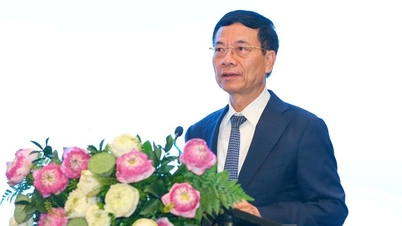





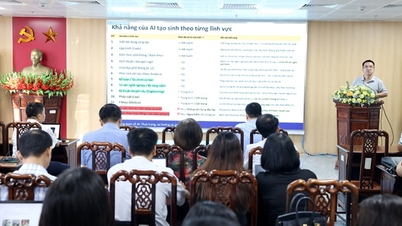














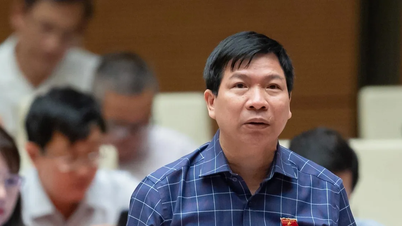

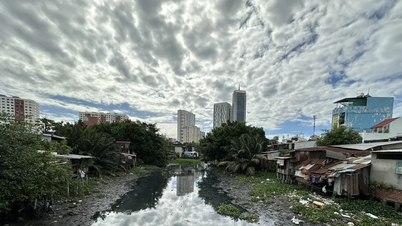






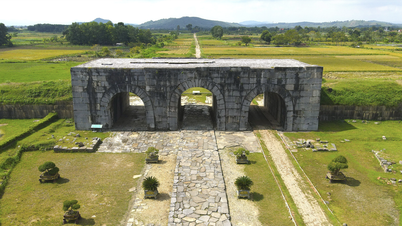















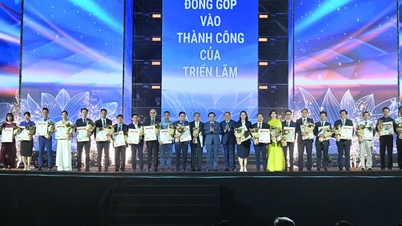



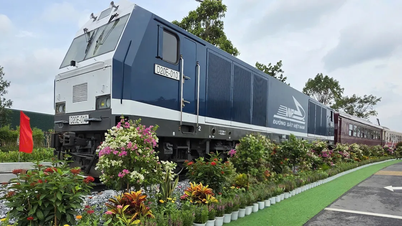



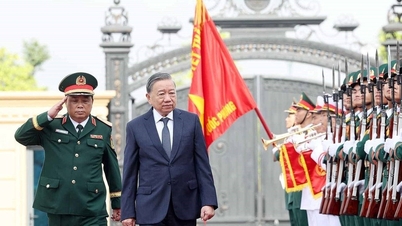









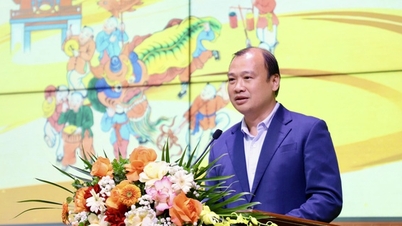

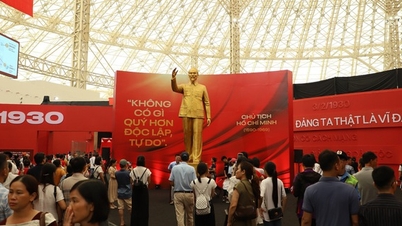
![[Live] Closing of the National Achievements Exhibition "80 Years of Journey of Independence - Freedom and Happiness"](https://vphoto.vietnam.vn/thumb/402x226/vietnam/resource/IMAGE/2025/9/15/de7064420213454aa606941f720ea20d)
























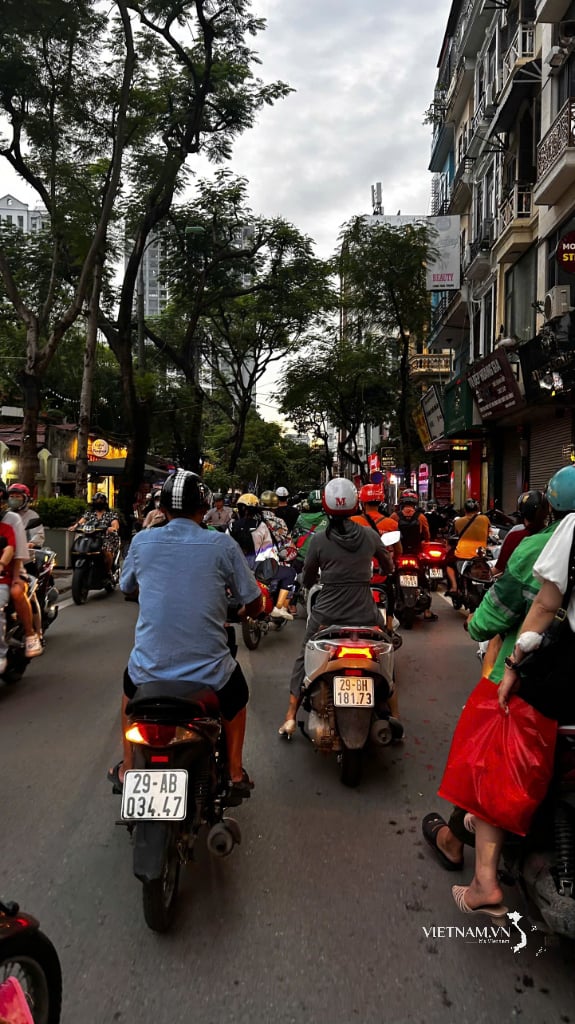

Comment (0)